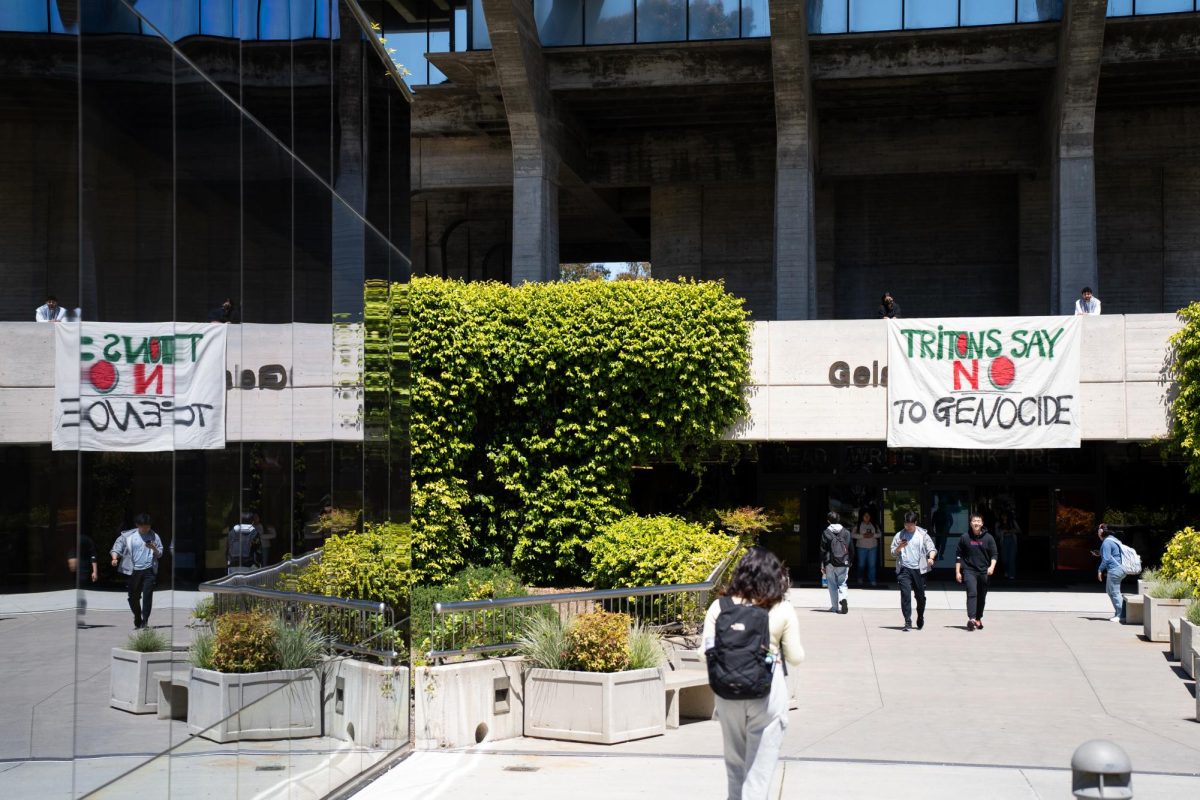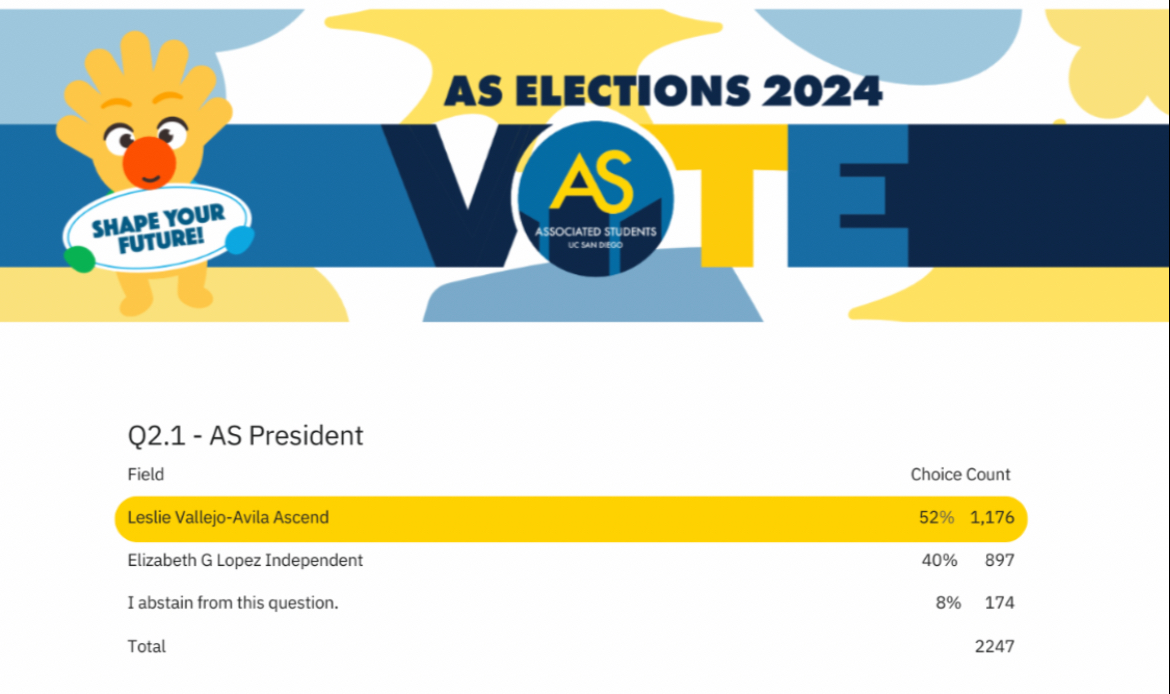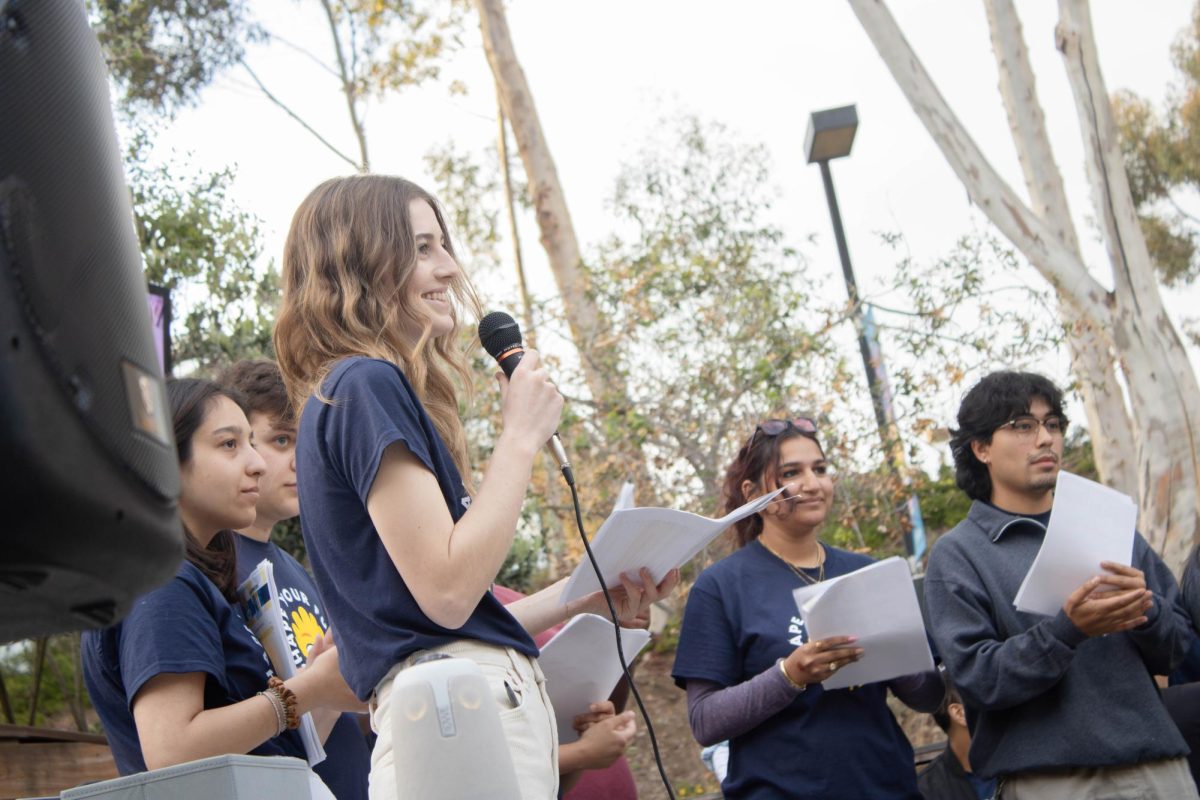The resolution, which was modeled after a similar effort at UC Berkeley, called for the UC Board of Regents to divest endowment funds from corporations such as General Electric and United Technologies. According to the resolution, these companies manufacture technology used in military weapons and vehicles, such as helicopters, used in war crimes in the Middle East.
According to Associate Vice President of Enterprise Operations Rishi Ghosh — who helped draft the document — the resolution is not the first of its kind. However, Ghosh said, if it had passed, it would have been the first recognition of Israel’s war crimes to be approved at a public university. Hampshire College, a private college in Massachusetts, has already divested entirely from the state of Israel. (The resolution considered by the council last night only advocated a break from corporations said to profit from Israel’s alleged war crimes.)
The bill drew students from campus groups such as Tritons for Israel and Students for Justice in Palestine, who spoke during the public input period at the beginning of the meeting.
Campuswide Senator-elect Elizabeth Elman said the resolution encouraged the university to adopt a neutral stance in the Israeli-Palestinian conflict by divesting from companies that support Israel’s actions in the conflict.
“I’ve heard that passing this resolution will divide our UCSD community on an issue that is far removed from this campus,” she said. “I would argue that we are already divided. I believe that discussing this resolution is the first step in reuniting our community. This resolution divests from American companies whose business solely benefits the war efforts of one side in this conflict will help restore the neutrality that our student body so vocally desires.”
However, Tritons for Israel President Dafna Barzilay argued that the legislation was biased and that passing it would alienate the pro-Israel community on campus. She said that the pro-Israel committee had been unfairly excluded from the drafting of the resolution and that the pro-Israel community had only three days to formulate a response before the vote at last night’s A.S. Council meeting.
“My community is feeling threatened, and we’re feeling unsafe,” she said. “One thing I would like to urge is that this is not a pro-peace resolution. It is marketed to be one — however, I would like to maintain that peace incorporates talks, negotiations and respects from both sides of any conflicted forces and this kind of movement should not be one that’s done overnight.”
According to A.S. Director of Policy Initiatives Mac Zilber, the money invested into G.E. and United Technologies does not come from tuitions or student fees — as the resolution states — but instead is derived from private donations. In addition, he said that the investment money supporters the capital unit of G.E., which is a commercial leasing unit of the company and is not involved in providing military technology overseas.
Following public input, councilmembers began to discus whether the resolution was an appropriate topic to discuss. A motion by Campuswide Senator Katie Hall to table the motion indefinitely failed 13-16-2 with 13 members voting in favor of tabling, 16 voting against and 3 abstaining.
Vice President of Student Life Ricsie Hernandez proposed that the original version of the resolution be amended and instead be replaced with a version created by Campuswide Senator Tobias Haglund. Haglund’s version removes all mention of Israel or Palestine and instead states that the council does not condone the financial support of companies that invest in military occupation in any country.
Ghosh said he would support the amended version of the resolution.
“That version was terribly watered down and a lot of people in our community weren’t happy with it, but I would have voted for it,” Ghosh said.
The amendment passed, but the issue was eventually voted to be discharged into a committee chaired with Speaker James Lintern, who resigned from the position at the end of the meeting.
“I didn’t volunteer for this position and this committee is going to fail in a big way,” he said. “I didn’t have good experiences with the council on this last year, and nothing’s going to happen with it.”
Hall, who voted for the issue to be discharged, argued that the debate should be resolved only once both groups have had equal input into the resolution.
“My problem is that there are members of Students for Justice in Palestine on this council, but there are hardly any members of Tritons for Israel on this council to have their voices be heard on this resolution,” Hall said.
Ghosh said that he was disappointed with the outcome since the original resolution had already been so radically altered.
“The last compromise really could have been passed, it was very transparent,” he said. “They knew it was about to pass so they voted it into committee where people can keep bringing up new things.”
Ghosh said that he would bring up the resolution again at the 2009-10 council’s final meeting of the year, which will be held next week.
“Next time I won’t bring up the compromised document but instead the original document,” he said. “I’m just going to keep bringing it up again and again and it might take 10 years, but divestment will pass.”
Readers can contact Angela Chen at [email protected].







